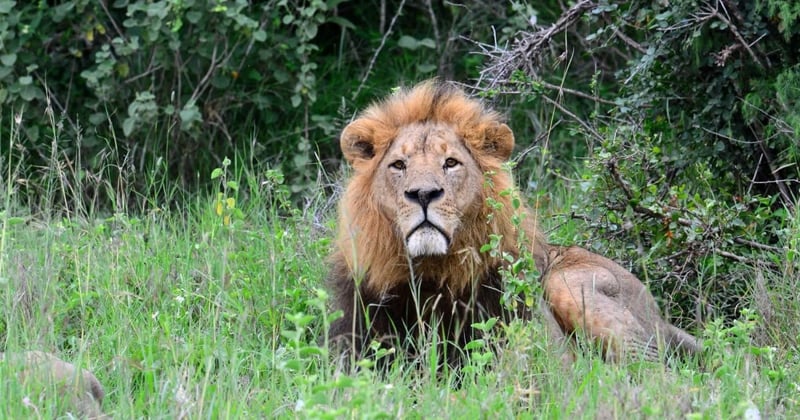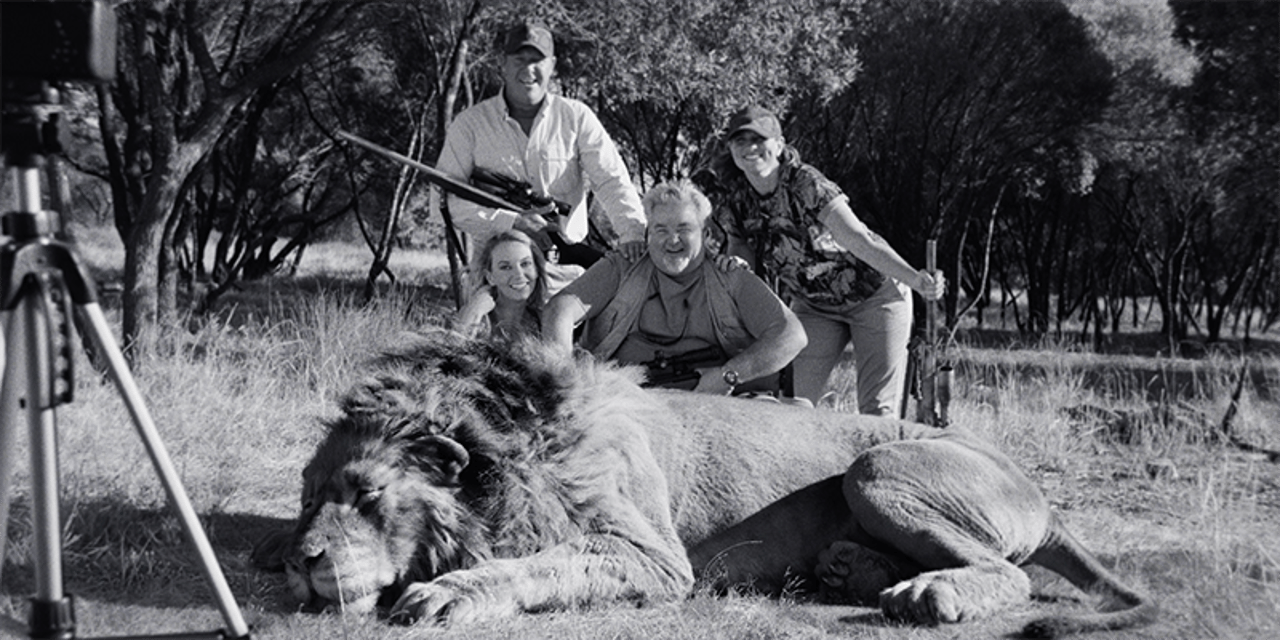
On July 1, 2015, Cecil the lion was tragically shot with a crossbow by a trophy hunter. He was found wounded hours later, where he was then finally killed.
Trophy hunting is one of the cruelest forms of wildlife abuse and often causes prolonged suffering and slow deaths. Additionally, the animals killed often have babies, now left alone, who cannot survive without the help of their parents.
An animal should never have to suffer for a so-called bloodsport most people are horrified by.
As well as causing immense individual animal suffering, the trophy hunting industry is wracked by corruption; the ecology in hunting areas in many countries is collapsing, and the bulk of the money generated never reaches local communities or conservation projects.
Image: a still from our 2019 film raising awareness of animal cruelty. This is a computer-generated artwork, no animals were harmed. The hunters are actors.
Most trophy hunters are American.
You may recall that the person who killed the infamous Cecil the Lion was an American trophy hunter. Unfortunately, wealthy Americans are fueling the trophy hunting industry. Canada, however, provides the most amount of wild trophy hunting experiences, with most US-imported animal trophies coming from the country to our north. In 2015, more than 50 percent of all canned-hunted lions in South Africa were done so at the hands of US trophy hunters.
Trophy hunting doesn’t help conservation.
While trophy hunts can cost tens of thousands, very little of that money goes back into the community or into conservation programs. Currently, there is no research showing how any breeding facility or canned hunting operation has made any significant contribution to uplifting communities.
On top of that, the animals targeted for trophies are not surplus animals, but are some of the most endangered species on the planet. Lion populations, for example, have been decimated by trophy hunting among other threats. A 2019 report noted that 40 percent of the big game hunting zones in Zambia and 72 percent in Tanzania are now classified as depleted solely because the big game has been hunted out of the area.
Trophy hunting has links to traditional Asian medicine.
As well as the trophies, big cats are also valuable for their bones, blood, and other body parts which are exported to be used in traditional Asian medicine products.
These products include wines, capsules, gels, and balms believed to cure ailments ranging from arthritis to meningitis. There is currently no scientific evidence that proves animal-based traditional medicine is any more effective than plant-based ones.
You may recall that the person who killed the infamous Cecil the Lion was an American trophy hunter. Unfortunately, wealthy Americans are fueling the trophy hunting industry.
